5 Key Risks to Our Food Security
Threats to our food security are now impossible to ignore. FLCCC Senior Fellow Dr. Brooke Miller sounds the alarm on the risks & offers ways to protect our food supply.
Hunger might not seem like an immediate concern in the West, but our access to food is more vulnerable than many of us realize. FLCCC Senior Fellow Dr. Brooke Miller, a cattle rancher and family doctor known for challenging the mainstream COVID-19 narrative, is now raising alarm bells about the serious threats facing our food system.
"We're facing challenges to our food security that most people aren't even aware of. The system is fragile, and we need to be vigilant about what’s happening to our food supply."
In this post, Dr. Miller sheds light on the various causes of food insecurity—a complex issue that, if left unaddressed, could jeopardize our health for generations. As we confront a declining life expectancy, driven in part by a flawed medical system and declining food quality, the stakes have never been higher.
In this post, we’ll explore six critical risks to food security that could soon affect us all:
The Uncertain Impact of mRNA Vaccines in Livestock
Monopolization of the Food Industry
National Security Crisis in Food Production
Impact of Skewed Government Dietary Guidelines
Lack of Transparency in Food Origins
1. The Uncertain Impact of mRNA Vaccines in Livestock
In a recent webinar, Dr. Miller and Dr. Karina Acevedo-Whitehouse teamed up to discuss the uncertain risks of eating animals injected with mRNA vaccines. They asked, "Would you feel comfortable eating animals injected with mRNA?"
The increasing use of mRNA vaccines in livestock has raised significant concerns about the safety of our food supply and the implications for global food security. Initially introduced in 2010 for diseases like foot-and-mouth and swine flu, mRNA technology's use in animals has expanded, particularly after the COVID-19 pandemic. Despite its growing prevalence, there is a worrying lack of data on the mid- and long-term effects of these vaccines in animals, including potential risks such as DNA damage, immunosuppression, and harmful protein production.
Dr. Acevedo-Whitehouse emphasized that we know little about how consuming products from vaccinated animals might impact human health and the overall state of food security. Dr. Miller strongly advocates for clear labeling of such products, allowing consumers to make informed choices. Both experts call for the application of the precautionary principle, urging caution and demanding transparency until comprehensive safety studies are conducted. The impact of these vaccines on food security and nutrition remains a significant concern.
2. Monopolization of the Food Industry
"Our food system and our cattle industry specifically is dominated by multinational megacorporations slash monopolies."
If you've ever read Dr. Miller's Substack—The Rancher Doctor—then you may know that monopoly is bad for food safety.
The U.S. food industry is increasingly controlled by a few multinational corporations, posing a significant threat to the diversity and resilience of our agriculture and food supply. Four main packing companies dominate 85% of the global protein market, effectively monopolizing the food industry. This concentration of power limits competition, suppresses profits for ranchers, and inflates food prices for consumers.
Dr. Brooke Miller likens this situation to the monopolies of the past, calling for a breakup similar to the one imposed on Standard Oil in 1929. By restoring competition and supporting small and mid-sized farmers, we can ensure a more equitable and secure food system. The concentration in the food industry also has implications for food security, as the lack of competition can lead to vulnerabilities in the food supply chain and increase the risks of food insecurity.
👉 Read more: Food Security, A National Security Issue
3. National Security Crisis in Food Production
When Dr. Miller was a child, he proudly told his father that he wanted to grow up to be a cattle rancher, just like him. His dad’s response: "Better get a good job." The implication was clear—cattle ranching is a tough business, so tough that you’d need a doctor’s salary just to keep it going.
The decline of the U.S. cattle industry has evolved into a national security crisis, with serious implications for the country's ability to sustain enough food for its population. The national cow herd is at its smallest since 1949, and the U.S. now imports more beef than it exports—a troubling reversal given the nation's strong history of cattle ranching.
As we alluded to earlier, this decline is driven by monopolization in the food industry and the shrinking profitability of cattle ranching, which discourages younger generations from entering the industry. Dr. Miller warns that if this trend continues, the U.S. could lose its capacity to feed itself, making the country increasingly dependent on foreign food sources. This dependency could have serious consequences for food security, particularly in times of global crises that could disrupt international food trade.
"We need to be energy-independent, manufacturing-independent, and food-independent."
4. Impact of Skewed Government Dietary Guidelines
When’s the last time you took a look at some of the official food recommendations out there? Now, imagine a major university spending three years and millions of NIH dollars to create a food compass that delivers this result:
A quick glance reveals something that would thrill most 8-year-olds—Lucky Charms are moderately healthy? Unfortunately, this isn’t a joke; it’s the reality we’re facing.
Government dietary guidelines, heavily influenced by big food corporations, have played a role in the current obesity epidemic by promoting unhealthy, processed foods that undermine food and nutrition. These guidelines have favored foods high in seed oils, high fructose corn syrup, sugar, and grains treated with harmful chemicals like glyphosate.
"Government sponsored dietary guidelines and the big food corporations are constructing food that is not natural, that is highly processed, tainted with seed oils and high fructose corn syrup and sugar."
Dr. Miller argues that these recommendations have shifted consumer habits towards unhealthy diets, benefiting large food corporations at the expense of public health. He calls for a reevaluation of these guidelines to prioritize natural, whole foods that support long-term health rather than corporate profits. The impact of these skewed guidelines on public health also affects food security and nutrition, as unhealthy dietary patterns can lead to increased healthcare costs and reduce the availability of nutritious food that meets dietary needs.
5. Lack of Transparency in Food Origins
Here's something that may surprise you: "Product of the USA" might not mean what you thought it did.
The repeal of mandatory Country of Origin Labeling (COOL) has created a significant gap in the transparency of our food supply, deceiving consumers and hurting local ranchers. This repeal allows imported beef to be labeled as "Product of the USA" if it is repackaged domestically, misleading consumers about the true origins of their food. Dr. Miller highlights how this lack of transparency has contributed to a significant drop in live cattle market prices, further squeezing American ranchers.
"The law reverted to a previous law that was on the books that said that meat imported from other countries could be labeled as product of the USA if it were significantly transformed within our borders."
He advocates for the reinstatement of COOL to ensure that consumers can make informed choices and support local producers. The lack of transparency in food origins not only misleads consumers, but also undermines efforts to achieve food security by obscuring the true sources of food.
What Can You Do to Protect Food Security?
As Dr. Brooke Miller has highlighted, the challenges facing our food system are multifaceted and growing. However, there are steps we can take to safeguard our food security.
One of the most impactful actions is to get to know and support your local farmers. By purchasing directly from them, you ensure the quality of your food and help to sustain small-scale agriculture, which is vital for a resilient food system. Additionally, advocating for transparency in food labeling, such as the reinstatement of Mandatory Country of Origin Labeling (COOL), can empower consumers to make informed choices and support local producers.
Finally, staying informed and raising awareness about the monopolization and manipulation within the food industry can drive the necessary changes to protect our access to safe and nutritious food. Together, these actions can help ensure that our food supply remains secure for future generations.





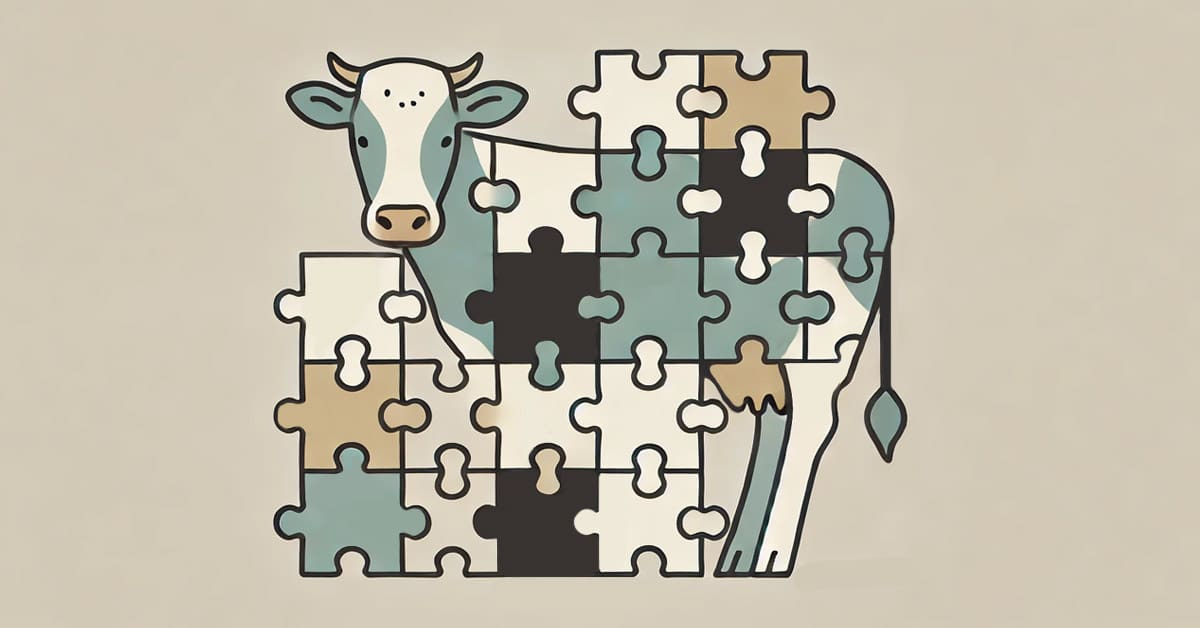
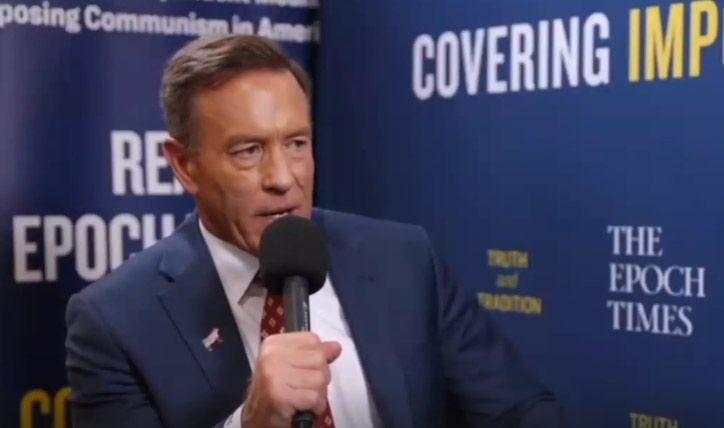
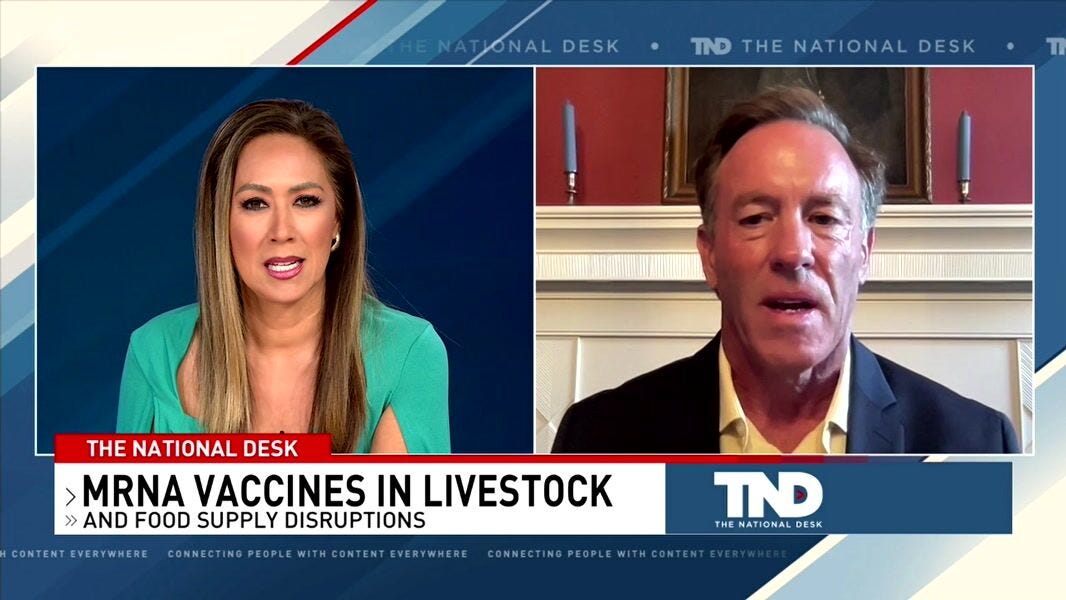
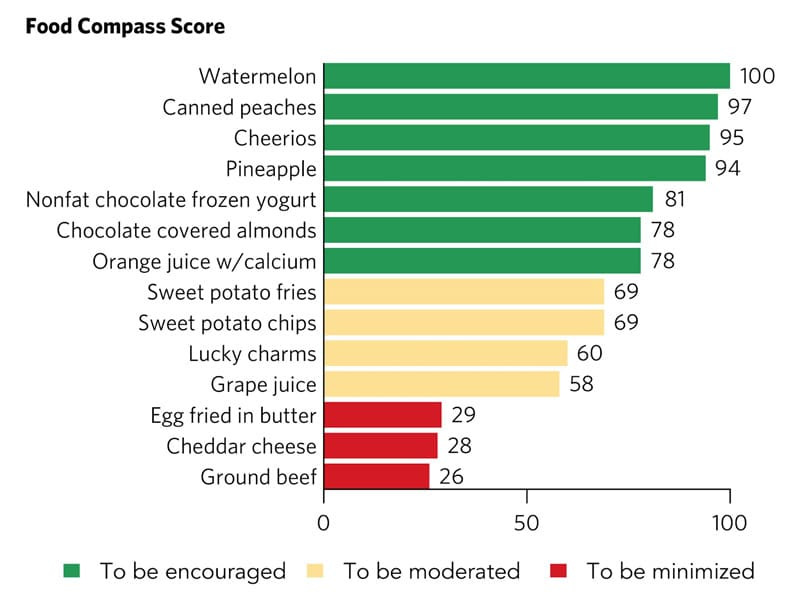
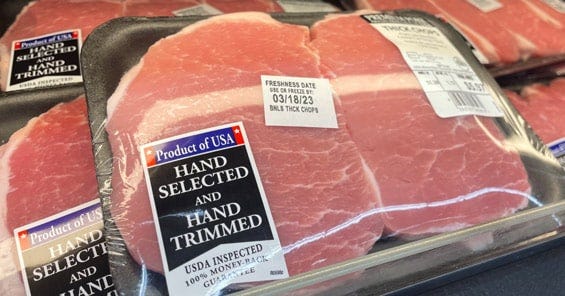

Plant a garden, as Chris Martenson has been saying since lockdowns started. Aim to expand a little each year and learn the lessons to grow more of what you need. Youtube can be a great guide for this.
Been buying beef and pork from a local farm for 3 years now. The quality is so much better than the grocery store, and I know it's all pasture raised. Not going back to the way i ate before.
It only takes a little planning
1) get one or more chest freezers
2) save $ throughout the year to make a large purchase of frozen, butchered meat
3) plan meals ahead of time so you can defrost the portions you need
We need to write to our local government representatives and governors demanding that our food supply be protected from monopolies and the control that the UN, WEF and Bill Gates want over our food, health and lives. My local dairy, beef and chicken farmer is being harassed. He can't process his cattle without a bird flu test. This shouldn't be legal in Florida. Soon, there will be letters written to governor DeSantis about this matter. Already planning to ask him to make ivermectin over the counter like in Tennessee.